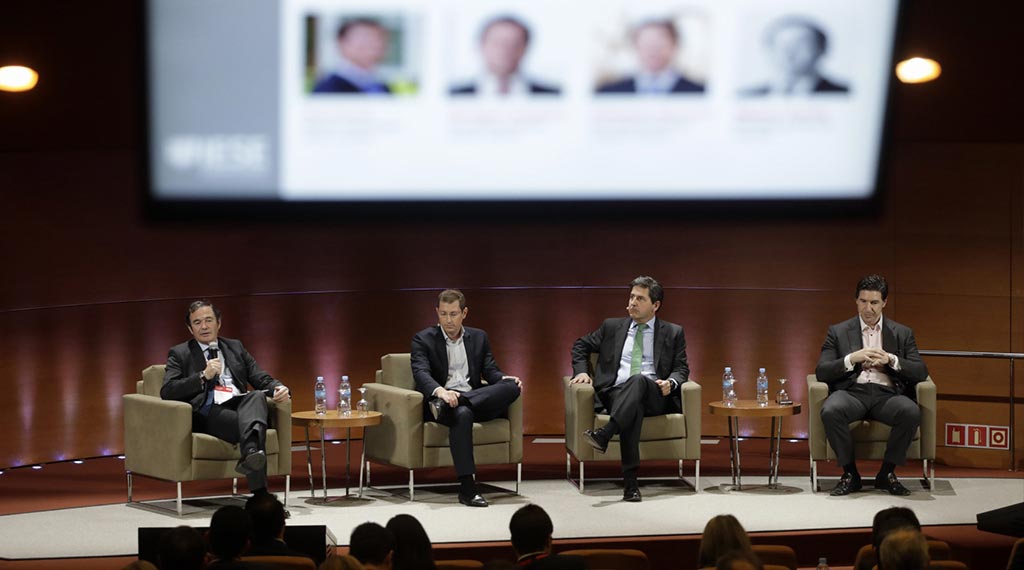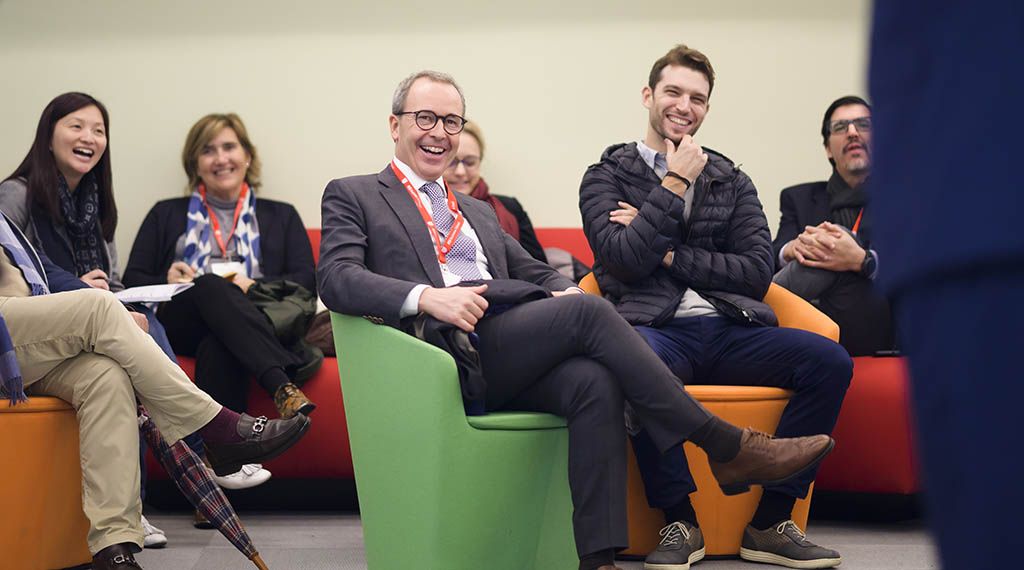
Stories
Partners as well as investors
Private Equity and Venture Capital Conference looks at changing roles and global growth
April 8, 2019
As signs emerge that world economic growth is slowing, leading private equity and venture capital investors looked at how dramatically their role has changed in the 10 years since the last great financial crisis.
The recent Private Equity and Venture Capital Conference, hosted by IESE, CFA Society Spain and ASCRI, took place on IESE’s Barcelona campus, bringing together industry leaders and investors from top European firms to discuss current trends.
Speakers agreed that as a knock-on effect of the 2008 crisis, there is today greater prudence and a more conservative culture in the industry, in which investors also act as partners. Claudio Aguirre, founding partner of Altamar, said, “There has been a conceptual change. We are no longer just the financial sponsors but also the [strategic and operational] partners.”
That is also one explanation as to why today there is a lot of liquidity swimming about but not as many deals as in the past, the panelists agreed.
Asked whether they are concerned about lower returns today, the panelists seemed unperturbed. “Private equity will continue to perform the best out of all liquid assets in terms of returns, even though all liquid assets are coming down a little,” Aguirre said. “Today 4 trillion is invested in alternative assets and the market cap sits at 75 trillion. There is plenty more room to grow.”
Best Deals Done Locally for Middle-Market
In today’s age of online deal-making, could everything in the private equity world also be done remotely? Not according to Jaime Bergel, managing director of HIG Capital, who stressed the importance of local presence in the case of middle-market transactions, where you’re competing against “the local guys.”
He said: “We need to be local to turn every stone to look for new opportunities, and have all eyes and ears on the market, looking to source elsewhere.”
Luis Seguí, co-founder and CEO of Miura Private Equity, agreed, adding, “Buying the asset is the flashy but the easy part. Then the work starts – transforming it into something bigger – and for this you need local skills.”
Human Element Key
How much do firms take into consideration the human element attached to their portfolio companies? Seguí said developing trust with the management team and other actors was fundamental, referring to “a magic triangle” comprising investors, the management team and industry experts. “If we have this magic triangle we will always beat the cycle and the competition,” he said.
Bergel expressed a non-negotiable attitude in cases where difficulties with management arose: “Until you start working with someone you don’t know what they are really like. Changing management can be emotionally tough, such as firing the guy who has been there for 20 years, but often it’s essential and can’t be done quickly enough.”
Sustainability Financially Sustainable
Post-crisis, there has also been a change in the tides in terms of what an investment success is considered to be. Today the criteria not only covers the financial aspects but also incorporates sustainability, or ESG, because both investors and society have demanded that it be so. This has led to the creation of a new role in investment firms: the ES Champion, whose job it is to adopt an empathetic approach towards implementing sustainability in the investment.
Asked how to incorporate ESG in special situations such as when taking on a completely broken company, Eduardo Navarro, founding partner at Sherpa Capital, said that it remained up there as a top priority. “In these cases, more risk is implied than in usual situations as these companies typically haven’t been spending money on CAPEX (capital expenditure), for instance. But whilst making returns is our mission, so too is developing society, and you have to balance both sides of the coin.”
He said he would have no qualms in taking a company by the horns and saying, “20% investment has to be for fixing environmental issues.”
Several points raised during the discussions countered what people might ordinarily assume about ESG investments. One of these was put forward by Enrique Tombas, founding partner at Suma Capital, who said, “If you make money and don’t have a strong ESG you can lose the business.”
Another came from Navarro, who pointed out how “sometimes you can actually save costs in your company with an ESG policy.” He added how at his company, Sherpa Capital, “ESG is a no-brainer. A company with a strong ESG commitment has a stronger multiple. We are willing to pay more for a company with a strong ESG initiative.”
Pol Ferrer of Abac Capital said that before investing in a company, his firm assessed it looking for any red flags they did not feel comfortable with, and these ranged from involvement with gambling to weapons to single-use plastic. “We also practice CSR internally in a bid to lead by example, and we are heavily involved in NGO work,” Ferrer said. “We like to do what we ask our portfolio companies to do.”


